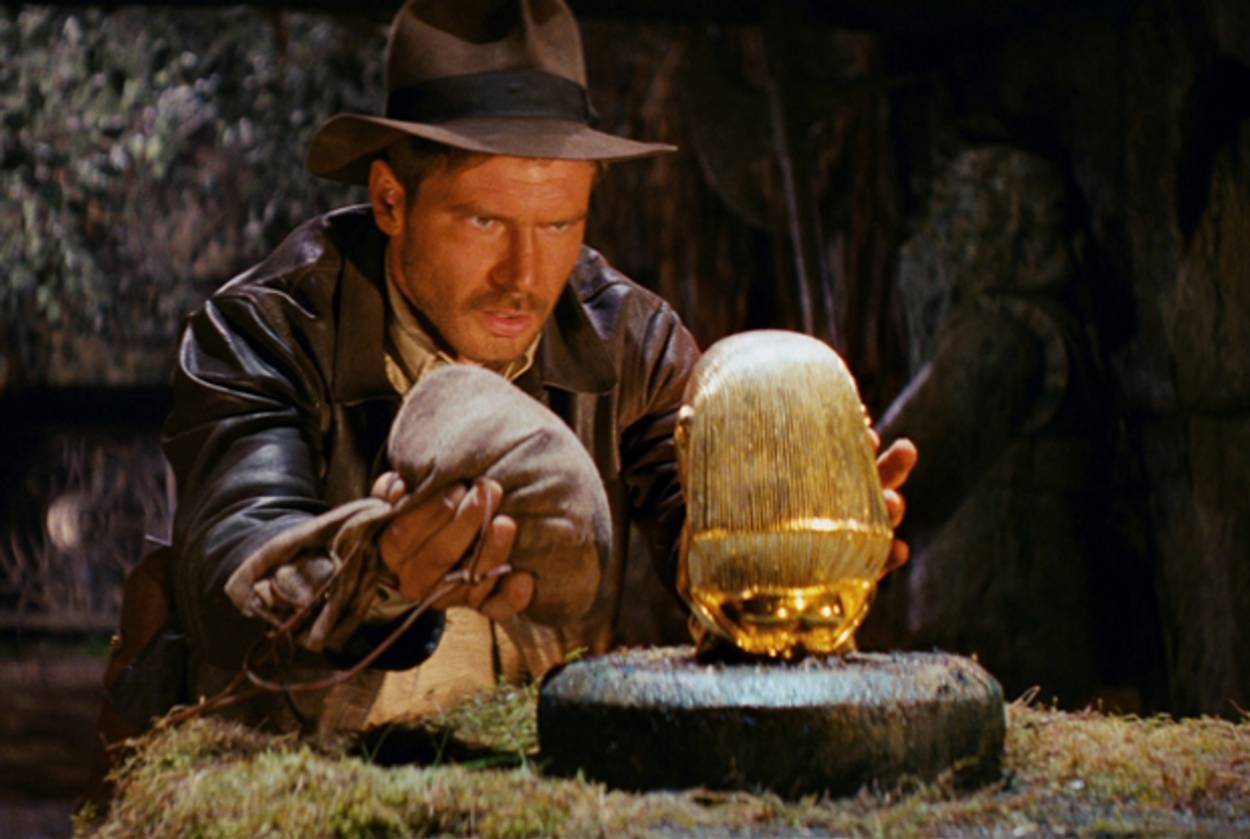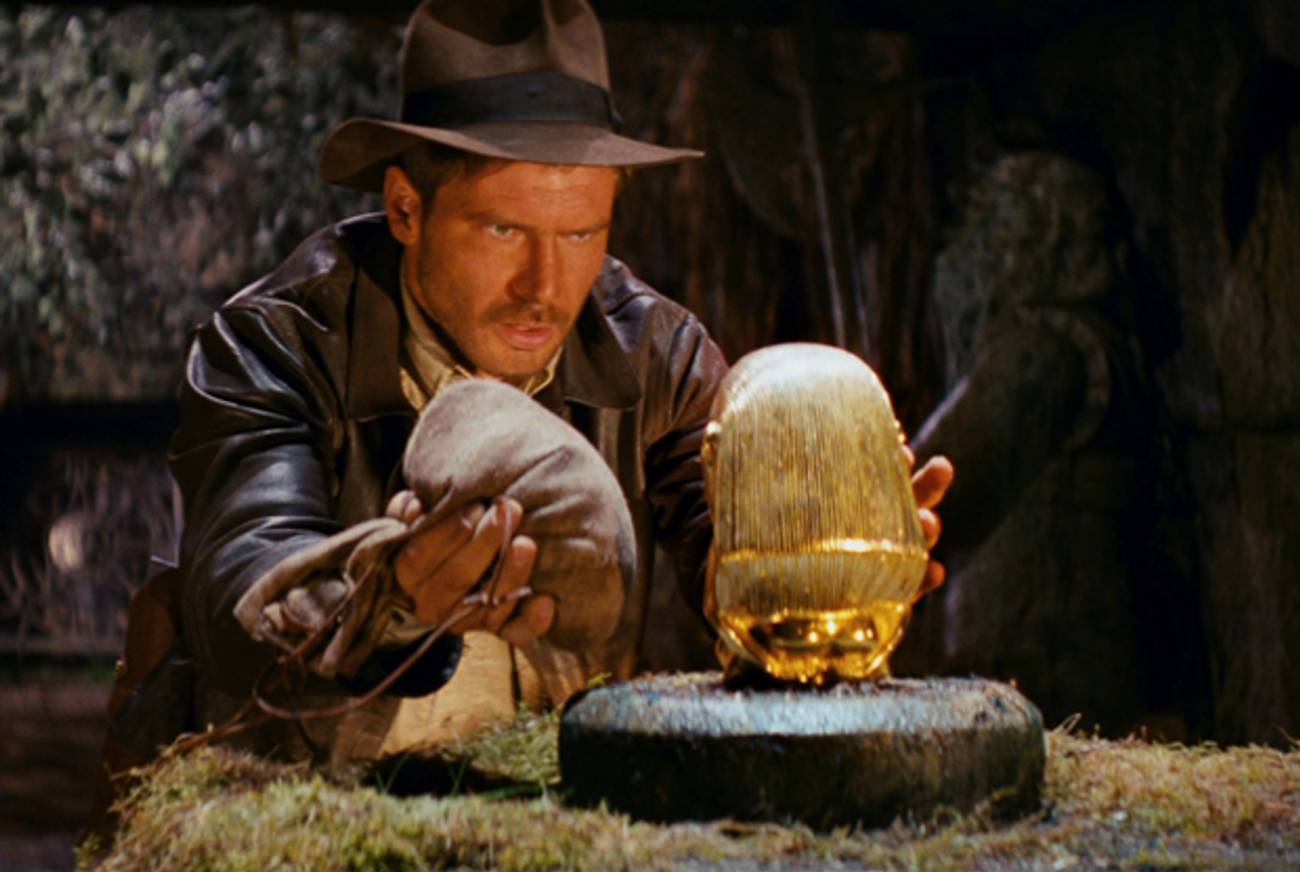Is ‘Raiders’ the Most Audacious Holocaust Movie Ever?
Indiana Jones kicks off Spielberg retrospective at Museum of Jewish Heritage




A little over 20 years ago, when Schindler’s List first appeared, Steven Spielberg gave a series of interviews in which he talked about how, as a child, he’d been uncomfortable with being Jewish.
“It isn’t something I enjoy admitting,” he told Parade, “but when I was 7, 8, 9 years old, God forgive me, I was embarrassed because we were Orthodox Jews. I was embarrassed by the outward perception of my parents’ Jewish practices…. My grandfather always wore a long black coat, black hat and long white beard. I was embarrassed to invite my friends over to the house, because he might be in a corner davening [praying], and I wouldn’t know how to explain this to my WASP friends.”
What his new movie meant, Spielberg suggested, was that he wasn’t embarrassed anymore. He’d figured out how to explain Jewishness to non-Jews, or, at the very least, he’d decided it was time to start trying.
But the truth is, if you look at Spielberg’s rich and varied oeuvre—which New York’s Museum of Jewish Heritage is doing with an eight-film retrospective this summer—there’s evidence that the director has had a keen interest in Jewish themes all along.
Take Raiders of the Lost Ark. The film offers many things—Harrison Ford in his first leading role; a protagonist, Indiana Jones, with one of the most memorable musical themes in movie history; a joining of forces between Spielberg and fellow box-office king George Lucas; a hearkening back to the B movie serials of the 1930s and 1940s—but, at its heart, it is a quest for the mystical legacy of the ancient Hebrews.
Not that there is any serious scholarship happening here. The underlying premise—that Hitler wants to track down the Ark of the Covenant because he thinks it’ll make his armies invincible—is enough to trouble even the most lackadaisical student of history. But verisimilitude isn’t really the point.
Raiders is about as far as you can get from Schindler’s List. A pulpy, over-the-top, counterfactual fantasy, it actually has more in common with Tarantino’s Inglourious Basterds than it does Spielberg’s Holocaust epic. If anything, it’s more audacious. Basterds, set in 1944, involves a crack team of American-Jewish soldiers who join forces with a Jewish cinema proprietress in a plot to do in the Nazi regime’s top brass. But for all its fanciful inventions, Basterds still situates its action during the war years. The Nazis have presumably had the chance to do a lot of harm. Spielberg doesn’t let them get that far. He sets Raiders in 1936, well before the war has even begun. And here, it’s not Jews who foil the Nazis’ plans—there actually isn’t a Jewish character in the whole film—it’s the spirit of God Himself.
The Museum of Jewish Heritage’s free summer-long series, Close Encounters of the Spielberg Kind, begins Wednesday at 6:30 p.m. and will continue every Wednesday through August 13.
Previous: Spielberg’s Niece Auditions for ‘The Voice Israel’
Steven Spielberg is an Embarrassing Proud Dad
Related: 100 Greatest Jewish Films—No. 59: Raiders of the Lost Ark
Gabriel Sanders is Tablet’s director of business development.